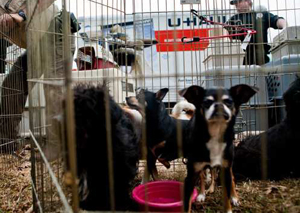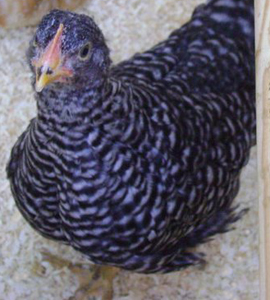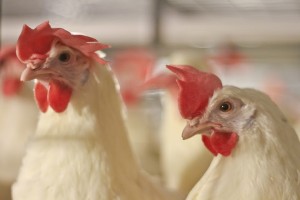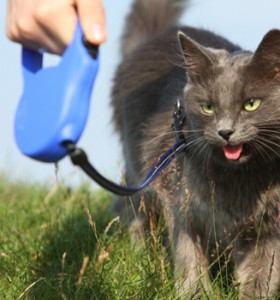 Pet Care, Shelter & Rescue
Pet Care, Shelter & Rescue  3 Comments
3 Comments The Trendiest Pet?
A recent Arizona Republic opinion piece suggests that we should view rescued pets as the new “high-end option,” that:
Taking one home gives you bragging rights in addition to a friend for life.
And it’s trendy.
It’s amazing how fast trends change nowadays. A few short years ago, everyone had to get a doodle mix so they could be just as unique as the rest of their Generation Y friends. Then along came the dog-as-purse-accessory. Remember that? But we’re so over it — the next big push for trendiness is, apparently, rescue pets.
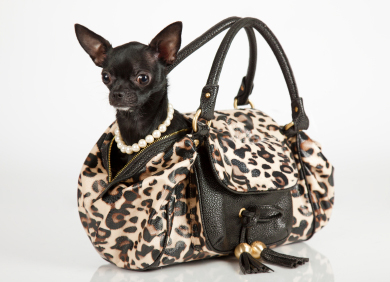
- Trendy Dog, circa 2009: in return for pampering, Gazoo provides valuable mascara warming services.
It should go without saying that getting a pet because it is the “cool thing to do” is a pretty awful idea. Whether doodle, purse dog, that purebred you just saw in a movie, or even a rescue pet, becoming a pet owner at the urging of an emotional twinge or desire for status decreases the chance of a positive outcome for all parties. Let’s say it again together for good measure: bad idea.
A realistic assessment of your ability to properly care for a pet over a lifetime and the pet’s suitability to your lifestyle should be the first, and most important considerations. If you’re seeking out a furry (or scaled or feathered) friend for life because you want something to brag about, something to win you points with your friends — sorry, but you’re doing it wrong.
If there absolutely must be a “trendiest pet” to brag about, why can’t it be that joyous companion — friend, clown, jogging partner, bacon-beggar, protector — who is chosen with careful research and foresight, who is properly and lovingly cared for his entire life? Now that kind of lifelong commitment and bond is something to be proud of.
